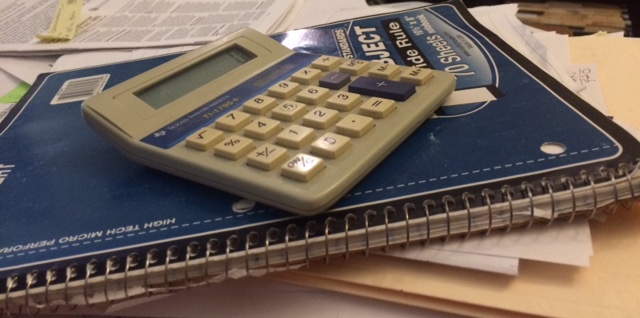For many involved in formal education the end of the school term is here along with the pressure to complete the dreaded “final grades.” Having returned to my normal “learning all the time” and “test by practical application” schedule, I’ve begun to observe some things about the academic year from the outside. I was “inside” the academic system for 17 years beginning in 1998. First, I was a graduate student, then, an academic administrator, and finally a faculty member. For five years before that, I taught in a private dance studio which was tied to the K-12 academic schedule. I now realize that while I was “in” it, I accepted many stressful and unhealthy things about that system without question.
First the NO-Ease
For one thing, the academic year is a completely contrary schedule for a dancer – my first career. A dancer needs to stay in shape. It’s very hard on the body physically to get out of shape and then whip it back into shape for performance. Better to create a plan for staying in dance shape throughout the year – modifying intensity of workouts at different times to give the body a rest but never turning into a “desk jockey” (my current problem) or a couch potato. When studying dance in academia many students arrive after a summer on the beach or working a job to make extra money and haven’t taken class for up to four months. Within 2-3 days of arrival on campus many departments schedule auditions so that they can begin rehearsals immediately. It’s ON from a dead stop. Everyone, faculty and students, goes from 0 to 110 in one week – bruised muscles, fatigue, pressure. Not healthy.
Then, everything is divided into semesters of 15-18 week learning cycles. Faculty try to take something they’ve studied for years and divide it into 15 absorbable chunks with tests, research papers, and discussion thrown in. Students have 4-5 topics they are expected to study all broken into this artificial 15-18 week structure.
When we get to the end of the term: students have 4-5 final projects due all at the same time – bruised brains, fatigue, pressure. Not conducive to learning or successful demonstration of what was learned. Students submit these culminating projects expecting faculty to review them with care, provide insightful feedback, and, of course, give them an A. Often, faculty assign final projects instead of a final test recognizing that a multiple choice or even essay test isn’t a great way to test knowledge and understanding. These final projects are often due the week BEFORE finals – which everyone thinks they like so they can escape campus sooner. This just adds more stress and pressure.
Now the Ease!
This is what is. We can’t change the whole system overnight. (However, in a number of states, K-12 programs run year-round with shorter breaks sprinkled throughout the year. A friend who teaches in this system says student knowledge and skill retention is greater after the short breaks than after a whole summer “off.”)
Recognizing and accepting this system for what it is, is different than being trapped in the rat race of it. Ease isn’t necessarily about changing a situation we don’t like, it’s often about changing our reaction to it. (Sometimes after working with Ease in a difficult situation and unraveling our habitual reaction to that situation, we come to the conclusion that leaving is what is needed. Many times, changing our reaction to what’s happening opens up enough space for the situation to change and we can stay.)
Working from right now – a huge pile of papers/projects/tests to grade – what do you notice about yourself? (Take a moment to scan your body and notice what you feel when you think about or look at that pile.)
Now, let yourself think about a pleasant place you like to be. I like to sit on my patio in my back yard listening to the wind blow through the trees, watching the leaves flicker in the light.  (Take another moment to gently scan your body and notice what you feel when you think about your place.) How do you feel? What do you notice? Is what you notice thinking about your pleasant place different than what you observed about yourself when thinking about the grading? Take note of that.
(Take another moment to gently scan your body and notice what you feel when you think about your place.) How do you feel? What do you notice? Is what you notice thinking about your pleasant place different than what you observed about yourself when thinking about the grading? Take note of that.
Alternate thinking about your pleasant place and the grading place do you notice changes in your energy, your breathing, or other places in your body?
The ideas you have about these places and things produce direct results in your body.
Any time you allow yourself to notice ease in your thinking you are giving your neurophysical self time and space to rebalance itself – even if you only notice for a few seconds. When you allow yourself to focus on things in such a way that you lose the ease in your thinking, you interrupt your body-mind’s natural ability to function optimally.
I offer these thoughts so that those of you with tight deadlines and mountains of papers to grade or final presentations to attend may experience ease now and then in the process. If you noticed a positive change from this experiment, I’d be happy to speak with you about ways to apply these ideas in other areas of your life.


